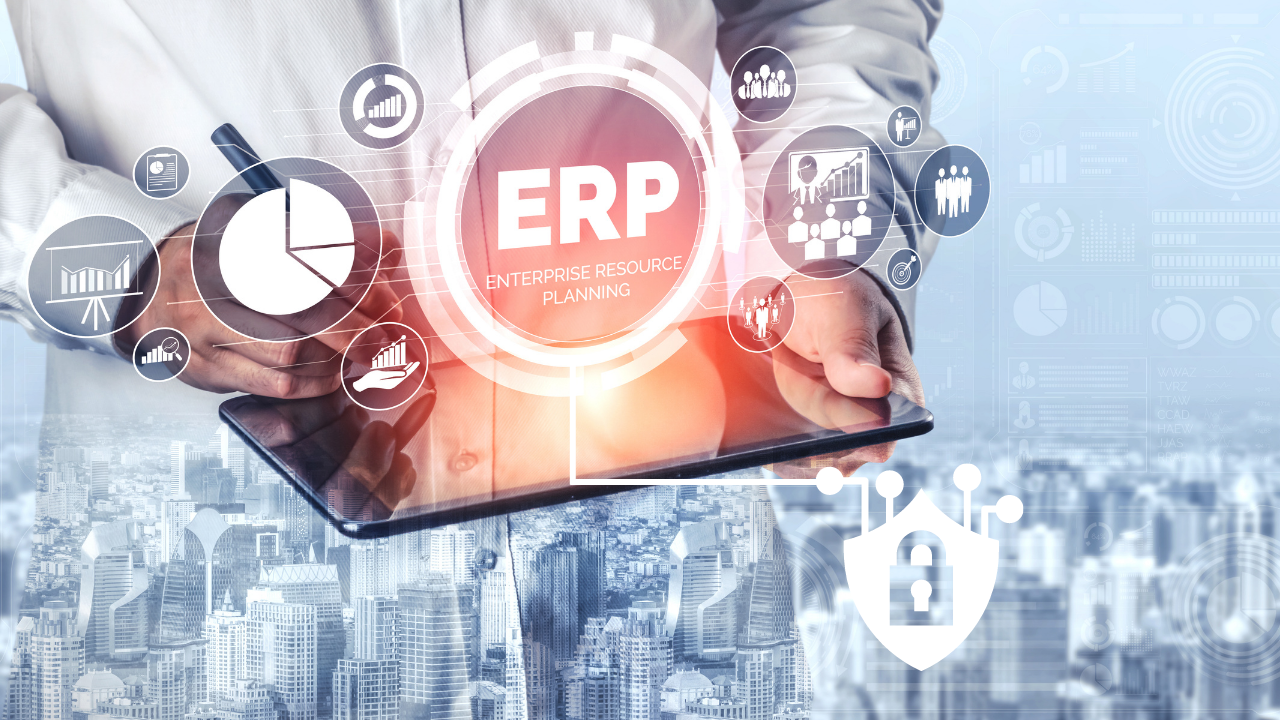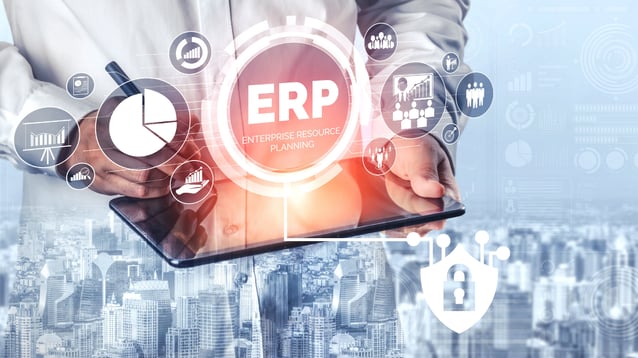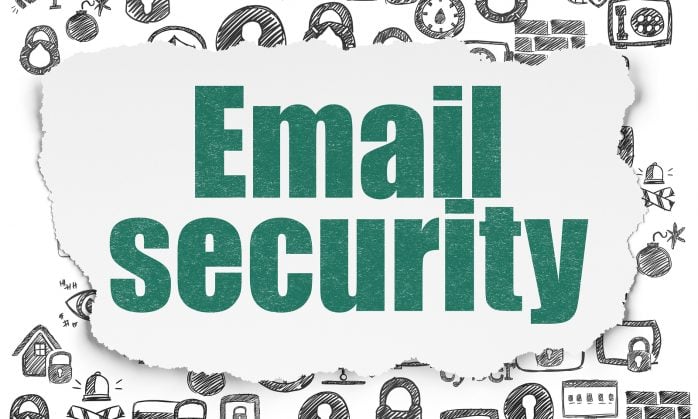4 Essential Security Tips for 2024
Simple antivirus programs are so 2023. In 2024, businesses will face sophisticated cyber threats, including ransomware, phishing attacks, and...
4 min read
 Joseph Ugalde
:
Jun 1, 2022 6:15:00 AM
Joseph Ugalde
:
Jun 1, 2022 6:15:00 AM

Enterprise Resource Planning systems, more commonly known as ERP systems, have become indispensable
to users worldwide in the past decade.
It’s a hugely efficient way to manage all the different departments of a business from manufacturing to shipping, HR, design, marketing, legal, inventory, and pretty much everything else in the organization.

The availability of cloud services and the necessity to work remotely made ERP even more essential. This is a double-edged sword though. ERP platforms are increasingly targeted by cyberattacks of various forms. After all, this is a centralized database that includes everything there is to know about any company.
Read More: PREPARING YOUR ORGANIZATION FOR A SUCCESSFUL CLOUD ERP IMPLEMENTATION!
The first step to securing any ERP system is understanding the challenges that face it. Prioritizing the most common and the most damaging is a rational approach that many companies adopt.
Here are some of the weaknesses we often see in ERP systems:
Not being aware of possible threats
Shallow audits of the security system
Missing important system updates
Assuming the cloud security system is enough
Insufficient IT resources for proper application setup and security
Insufficient authentication of logins
Weak passwords & password practices
Excessive permissions in folder sharing
A relaxed sense of vigilance within the organization
Not staying up-to-date with cybersecurity issues
Each ERP system has its individual technical characteristics, thus, every organization would encounter a different set of security demands. Thus, it’s essential for each business, corporation, or facility to tailor its ERP security so that it would fit its own requirements.
Here are 7 of the best ways to secure an ERP system.
Any system can become vulnerable over time, and as a result of the way it is used. Additionally, the manner in which the system is maintained would either solidify its defenses or weaken them. That’s why it’s a top priority to conduct a full assessment of the system’s security status at regular intervals.
It’s worth mentioning here that the technical team that does these checks needs to be specialized in cybersecurity. One way is to give the in-house IT staff the necessary training, and let them handle that task.
If that’s not feasible, then, outsourcing a specialized cybersecurity contractor is advisable. And of course, the selected candidate for that job should have a rock-solid track record in such matters.
Read More: IT COMPLIANCE VS IT SECURITY: DIFFERENCES AND SIMILARITIES TO KNOW
Back in the day, the in-house IT staff was hired to sort out minor operating issues and handle the occasional system updates. These good old days are long gone.
There are some very serious threats currently ravaging the data systems of big and small organizations alike. The stakes are much too high, and with the added risks, the need for skilled system maintenance personnel increases.
Fortunately, there are various ways to train the IT staff on the latest trends in ERP system security, operating system fortification, and countering cybercrime. The easiest of these methods is taking online courses.
Attending trade conferences, reading the latest material on cybersecurity, and participating workshops are also effective ways to stay on top of the latest in that field.
The technical team naturally takes on the bigger part of the responsibility for ERP security. This usually gives the rest of the users an impression that they’re not accountable or responsible for system security matters.
In fact, a big chunk of the ERP system vulnerability is caused by user oversight. That’s why educating the whole staff on the best practices to keep the system secure is important.
The best way is to organize workshops and orientation sessions inside the company. Some organizations opt for more creative approaches, like going to a retreat for education and relaxation. That’s good too.
Updating the system whenever a new version is released was the way things were done a decade ago. This process was needed every year or so. This is so retro!
Updates are currently released almost on a daily basis, and the organizations have to keep up. Some major updates require restarting the system, and that’s never easy for any business. That’s one of the reasons they might skip updating their platforms or operating systems.
It’s worth mentioning here that most of these updates aren’t cosmetic. They often address a vulnerability in the system security or deal with a bug that causes annoying glitches. Either way, an update should never be skipped.
Easy passwords invite hackers. This is a rule of thumb whether you’re safeguarding a smartphone or an ERP system.
All users should be recognized by the system via a multi-step authentication procedure. This is like going through double doors with security guards standing vigil on each one. This is in contrast with opening a small unattended gate and stepping right in.
The complexity of logins might be an added burden to the users, but in the long run, it’s among the biggest protectors of their work.
Some organizations assume that the ERP package, operating system, or cloud service provider will offer them full security against penetration. This is an extremely optimistic assumption.
Each one of these systems does provide a certain degree of protection. However, the challenges that a cyberattack presents can easily surpass that protection. These things get more vicious day after day.
It’s best then to add a secondary cybersecurity program. This way, the organization would become a much harder target for hackers.
After the whole system is set up and running, it’s essential to conduct actual tests to see how strong the defenses are. If any bugs or loopholes appear, they can be patched up promptly before they cause any issues.
Additionally, the ERP system usage needs to be monitored regularly. Admittedly, this is an added burden, and the tech staff might not be too thrilled with it. However, this extra step wards off much bigger risks, and that makes it worth the effort.
Finally, the system needs a backup plan. This means that every contingency as a result of a breach in security should be considered. Putting an action plan in place is among the most effective ways to secure your system, even if an actual attack takes place.
Read More: 3 TYPES OF SOFTWARE EVERY MANUFACTURER SHOULD USE
ERP system security should rank at the top of the priority list for any organization. A system that holds all the details and data of how the company is run is always at the crosshairs of hackers.
Simple actions like using more complex passwords and staying current with system updates get you closer to a leak-tight system. Applying stringent testing and monitoring are pretty good practices too.
Keeping your ERP system safe and sound is certainly worth the effort.

Simple antivirus programs are so 2023. In 2024, businesses will face sophisticated cyber threats, including ransomware, phishing attacks, and...

Email communication is now what makes the world go ‘round. While the pandemic has exacerbated the need for online communication channels, email has...